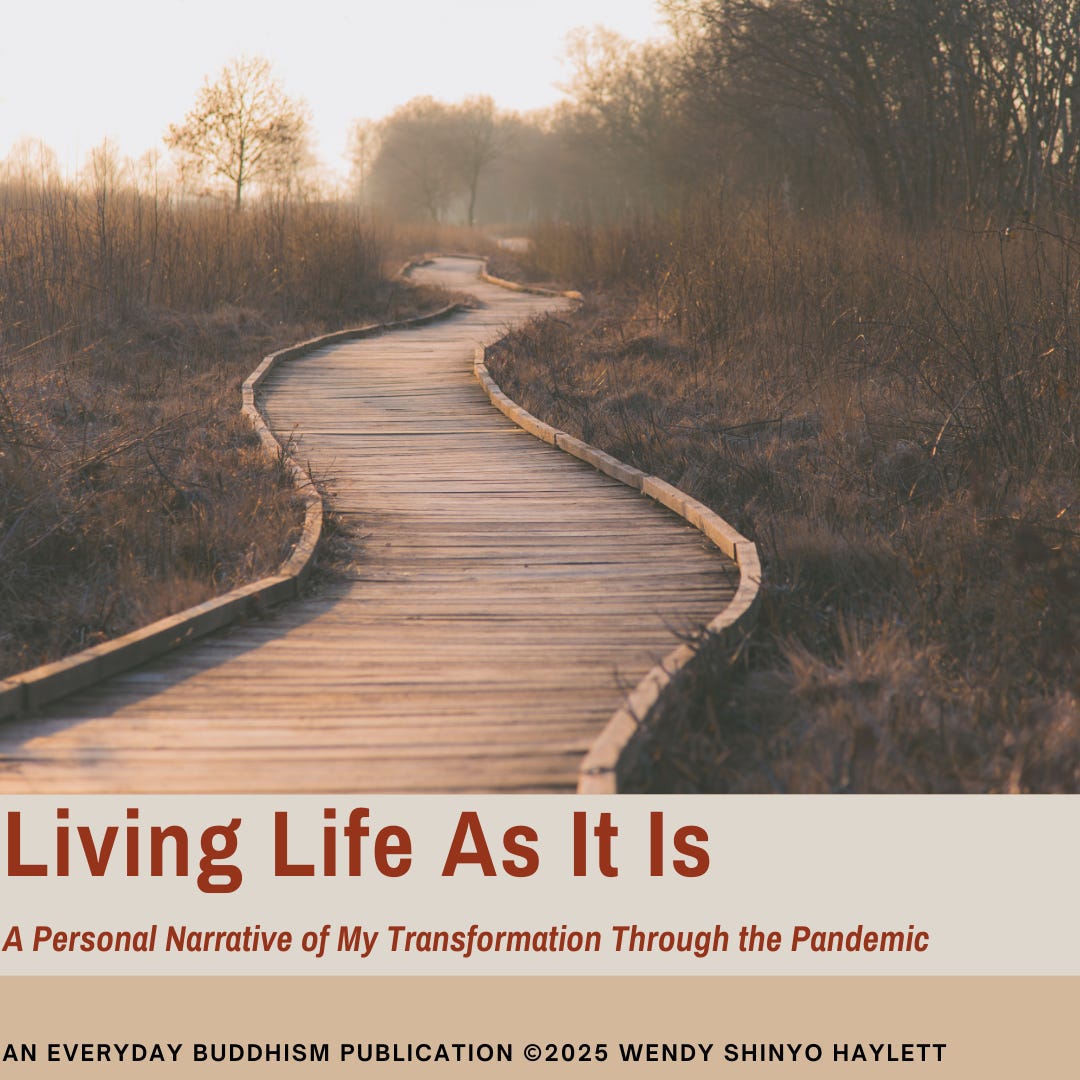Living Life As It Is: Chapter 4
Why Knowing We’re Ignorant Eases Suffering
Why Knowing We’re Ignorant Eases Suffering
The greatest enemy of knowledge is not ignorance, it is the illusion of knowledge.
~ Martin Luther King Jr.
We Are Foolish, Not Sinners
Delusion is our natural state. I know that sounds pessimistic and a little like the “original sin” of Christianity, where Eve questioned the authority of God and took a bite of the forbidden fruit, sentencing all of us to a charge of sinners. But it’s not like that. The natural state of delusion I’m talking about has no sinful or evil intent.
It is true that delusion is inherent in the human condition, but we also have inherent goodness, or Buddha Nature. This allows us #1: To be aware of our natural deluded or ignorant state; and #2: To course correct. And course correction requires awareness and intention. The combination of not being aware of our ignorance and a lack of intention causes us to live as if under the authority or direction of feelings, thoughts, speech, and actions without the self-reflection that aligns behavior—as much as possible—to a greater goal of meaningful awareness.
It is like a boat that has lost its rudder and goes whichever way the wind is blowing. A lack of awareness and intention causes us to go with the flow of habitual reactions to ego-driven feelings, needs, and desires that are ingrained in us by previous causes and conditions. It is natural to respond to our bodily urges and desires and react to our emotions with an immediate response. Natural, as in biologically natural. If we were living in the wild, staying alert for predators and the threats of other tribes, then this reactivity would be a strength necessary for our survival. The only intent would be to survive.
We don’t need those hair-trigger responses and reactions to our environment today, at least not most of the time. Evolution applies to individuals as well as species. Even though reactivity to bodily sensations, urges, and emotions are natural, they aren’t all that is natural in us. We also have the mental capability to become aware of how we are responding and reacting. We can personally evolve beyond impulsive reactivity by practicing and strengthening our natural capacity for awareness of our bodily sensations and feelings. Once we become aware of them, we can learn to observe with objectivity, or equanimity, then reflect and meditate on whether we need to react to the sensations and feelings arising in us. This allows us to escape from the domination of our past and frees us to respond to what is happening now, to live life as it is.
Recognizing Our Foolishness
The first step in escaping a life lived in delusion or ignorance, and the suffering it brings, is to acknowledge that we are tricked or deluded by our own habit patterns of feelings and reactions. We generally don’t think or reflect on these habit patterns, but instead live life under their spell. This is foolish. The definition of foolish is “a person or an action that lacks good sense or judgment; unwise.”
I would add to that definition by expanding on what good sense means. To me, good sense is, first and foremost, living with an understanding of life as it is. Normally, we refer to our five senses: Sight, hearing, touch, smell, and taste. In Buddhism, we refer to the Six Sense Doors. They are called “doors” because they are entryways to perception. These six are: Seeing, hearing, smelling, tasting, touching, and mind. Despite the subtle reordering, the main difference between what we normally perceive as our senses is the addition of the sixth, the addition of mind. The mind sense door opens to our emotions, thoughts, and mental images.




